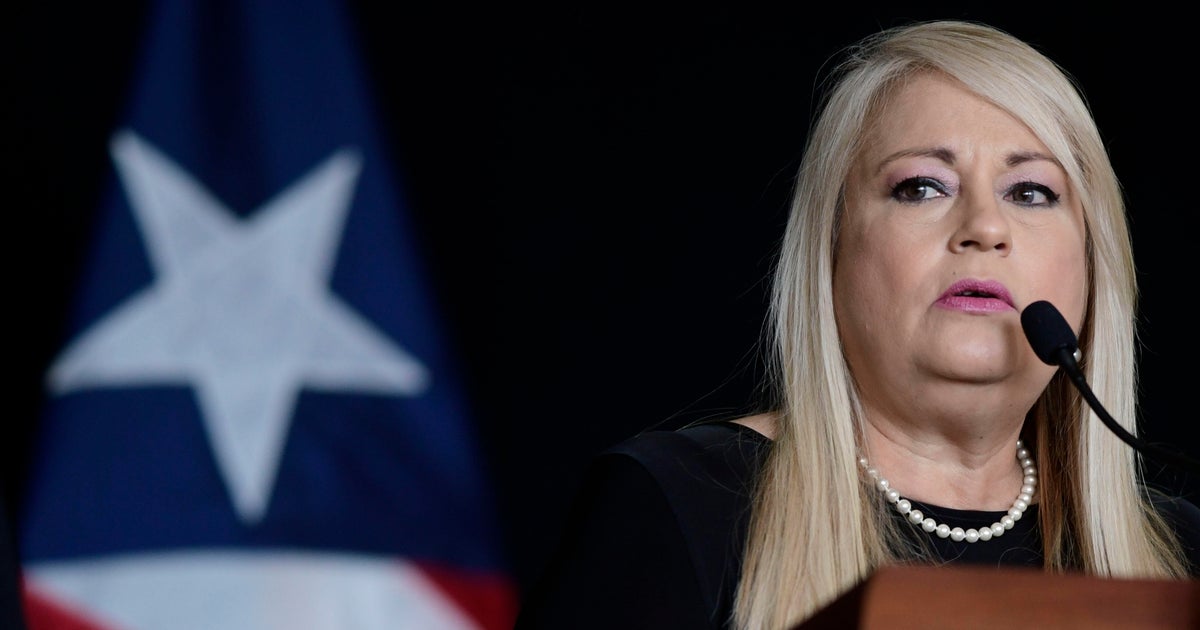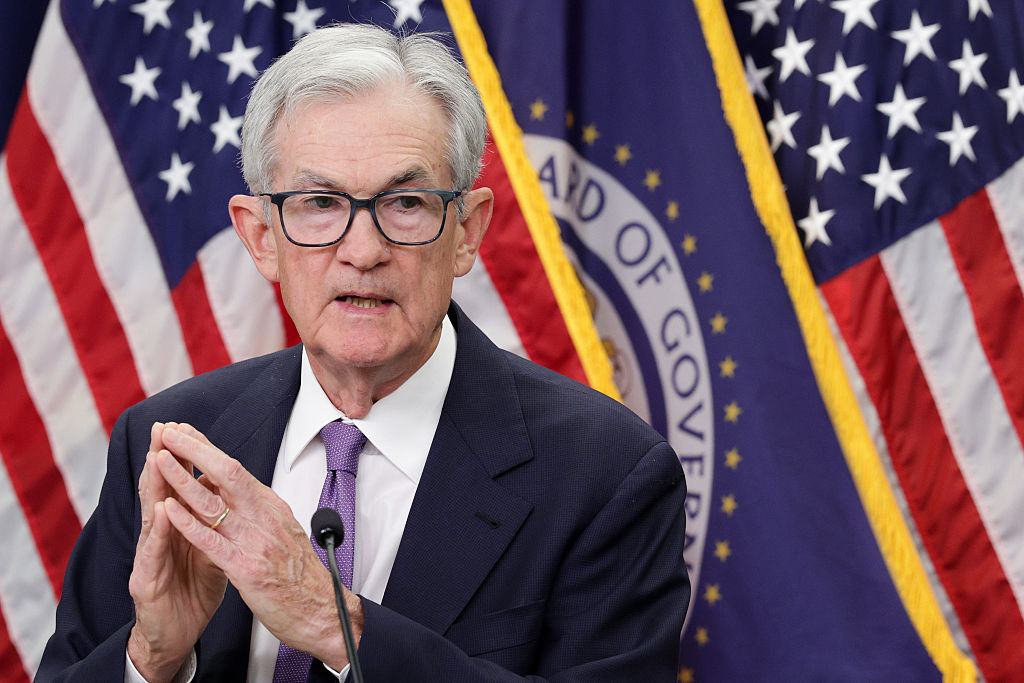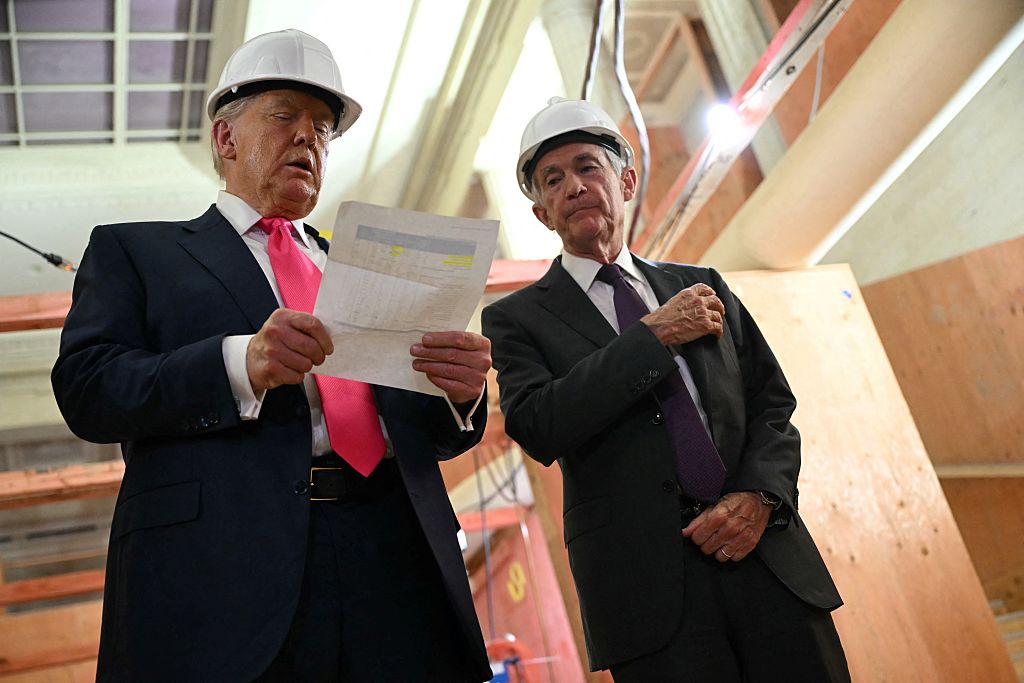Trump poised to name his candidate to lead the Federal Reserve
President Donald Trump has had five leading candidates to be the next chair of the Federal Reserve, including a Republican Fed governor who's been allied with current chief Janet Yellen, a Stanford University professor who opposes Yellen's policies or Democrat Yellen herself. But CBS News has confirmed that Yellen, who has led the central bank since 2014, is out of the running.
The remaining candidates, all Republicans, are defined by comparison with Yellen, a liberal Democrat. The president intends to make his pick, which the Senate must confirm, before he leaves for a trip to Asia on Friday. "People are anxiously awaiting my decision as to who the next head of the Fed will be," Mr. Trump tweeted on Friday, promising that a big announcement is coming.
Whomever he chooses will have enormous sway over the economy, as the leader of the central bank for the world's largest economy, at a time the Fed is pushing up interest rates kept low in the wake of the financial crisis. The Senate must approve Mr. Trump's candidate for the position by majority vote.
Right now, the odds favor Republican Fed governor Jerome Powell, and Bloomberg News reports that Mr. Trump is leaning toward him, citing three people familiar with his thinking. Powell also is the front-runner by the reckoning of PredictIt, the betting market for political and financial news. He has backed Yellen on many of her initiatives.
Coming in second in the PredictIt sweepstakes is economist John B. Taylor, who has served in the administrations of both Bush presidents and specializes in monetary policy at Stanford. He is an outspoken detractor of the Yellen Fed's policies. Mr. Trump also has suggested he might tap both Powell and Taylor, making one of them the chair and the other the vice chair.
Yellen, the current chair whose four-year tenure ends in early February, had been a distant third in the betting market's rankings. She has continued the stimulus program begun under her predecessor, and now is unwinding it slowly.
The other two names known to be under consideration by the president -- Kevin Warsh, a former Fed governor, and Gary Cohn, who heads the White House's National Economic Council -- have seen their chances shrivel.
Nevertheless, Mr. Trump is known for his unpredictability. After winning the election last fall, he interviewed a host of political luminaries to be secretary of state, such as 2012 Republican presidential nominee Mitt Romney and former New York Mayor Rudy Giuliani. But Mr. Trump went with a dark horse, Rex Tillerson, who was the chief executive of Exxon Mobil (XOM).
If Taylor or Warsh are the choices, the bond market would likely react by pushing up rates and lowering bond prices (they move in opposite directions), in the view of John Lynch, chief investment strategist at LPL Financial. That's because the two are hawkish, meaning they want to raise interest rates at a faster clip than Yellen does.
But if Powell get the nod, the bond market would breath easier, Lynch indicated. Powell is considered more dovish, like Yellen wanting to hike rates slowly so as not to disrupt the economy's sluggish recovery.
Here's how the short list for Fed chair, in order of PredictIt's ranking, looks:
Jerome Powell. He would be the first non-economist to helm the Fed since the 1987, when Paul Volcker left the Fed. Yellen and her two predecessors, Alan Greenspan and Ben Bernanke, are all Ph.Ds in economics. Still, Powell has "learned his trade well" in monetary policy and wowed a crowd of economists in a recent appearance, Deutsche Bank analysts said in a report.
Known as "Jay," Powell, 64, spent much of his career as a lawyer and investment banker, and held high positions in the Treasury Department under President George H.W. Bush. He was appointed as one of seven Fed governors in 2012 by Democratic President Barack Obama, and reportedly has the backing of present Treasury Secretary Steven Mnuchin.
Called "the GOP Yellen," he has supported the current chair in her policies of keeping rates low and buying bonds, and then her shift to gradually going the opposite way. Under Yellen, Fed has raised its benchmark interest rate four times from near zero and has started to reduce its massive $4.4 trillion bond portfolio. Mr. Trump has made clear his preference for keeping rates relatively low to help spur economic growth.
While Powell is closer to Yellen on gradual rate increases, he differs from her in wanting to lift crisis-imposed regulations from financial institutions. He would bring "the highest degree of continuity," Deutsche Bank wrote, calling him a "consensus builder."
John B. Taylor. The same can't be said of Taylor, 70, a longtime Fed critic, who blames the central bank for helping spark the 2008-09 crisis by keeping interest rates too low, thus promoting vast and ill-advised borrowing. The lone economist on the Fed short list, with Yellen out, he is the most academically distinguished of the Fed candidates. Taylor's research has won widespread praise, even from his detractors. Aside from his service to the two Bushes, he also advised Republican Gerald Ford and Democrat Jimmy Carter.
Taylor is no stranger to controversy. At Stanford, he developed a mathematical model to guide the federal funds rate that held that the benchmark should rise more than one point for every 1 percent boost in inflation. Meant to foster price stability, this plan has drawn both praise and scorn. Neel Kashkari, president of the Minneapolis Fed, once remarked that imposing his rule would have pushed millions into unemployment, "enough to fill all 31 NFL stadiums."
Taylor's recent economic forecasting skills have also proved off the mark. He predicted in 2010 that the Fed's stimulus program would trigger rampant inflation. It hasn't, with core inflation in the U.S. still below the Fed's 2 percent target.
Kevin Warsh. Well-connected in Republican circles, Warsh has previously served on the Fed as a governor from 2006 to 2011, where he helped Bernanke combat the financial crisis.
Since then, he has been a critic of the Fed's bond-buying program, done to inject cash into the economy and keep rates down. He also disparages the Dodd-Frank financial reform law passed in 2010 under President Obama and takes a hawkish stance on the pace of monetary tightening.
While not an economist, Warsh now is a fellow at Stanford's Hoover Institution. A lawyer, he worked for Morgan Stanley (MS) on mergers and acquisitions, and also served in the second Bush's White House as an economics adviser. Warsh, 47, was the youngest Fed member in history. One possible plus for Mr. Trump: Warsh's father-in-law is Ronald Lauder, a mega-bucks GOP donor close to the president.
Gary Cohn. An early favorite to lead the Fed who appears to have faded, the head of Mr. Trump's economics council has the dual problem of having both Democrats and populist Republicans skeptical about him. Before Washington, he was the No. 2 executive at Goldman Sachs (GS), an investment bank targeted by both right and left for its role in the 2008 financial crisis. Mr. Trump, according to news reports, was upset with Cohn when the adviser objected to the president's remarks about the white supremacist march in Charlottesville, Va.
At the White House, Cohn, who is also not an economist, has played a key role in the Trump administration's failed effort to repeal Obamacare, push to deregulate the financial industry and tax reform proposal.
For a while, the president seemed disposed to considering Yellen, whose term ends February 1 of next year, for a second four-year term as chair, saying she had done "a good job." Yellen, 71, previously an economics professor at the University of California at Berkeley, is the first woman to lead the Fed. Even if not kept on as chair, she could remain on the Fed until her 14-year term as a governor expires in 2024.





